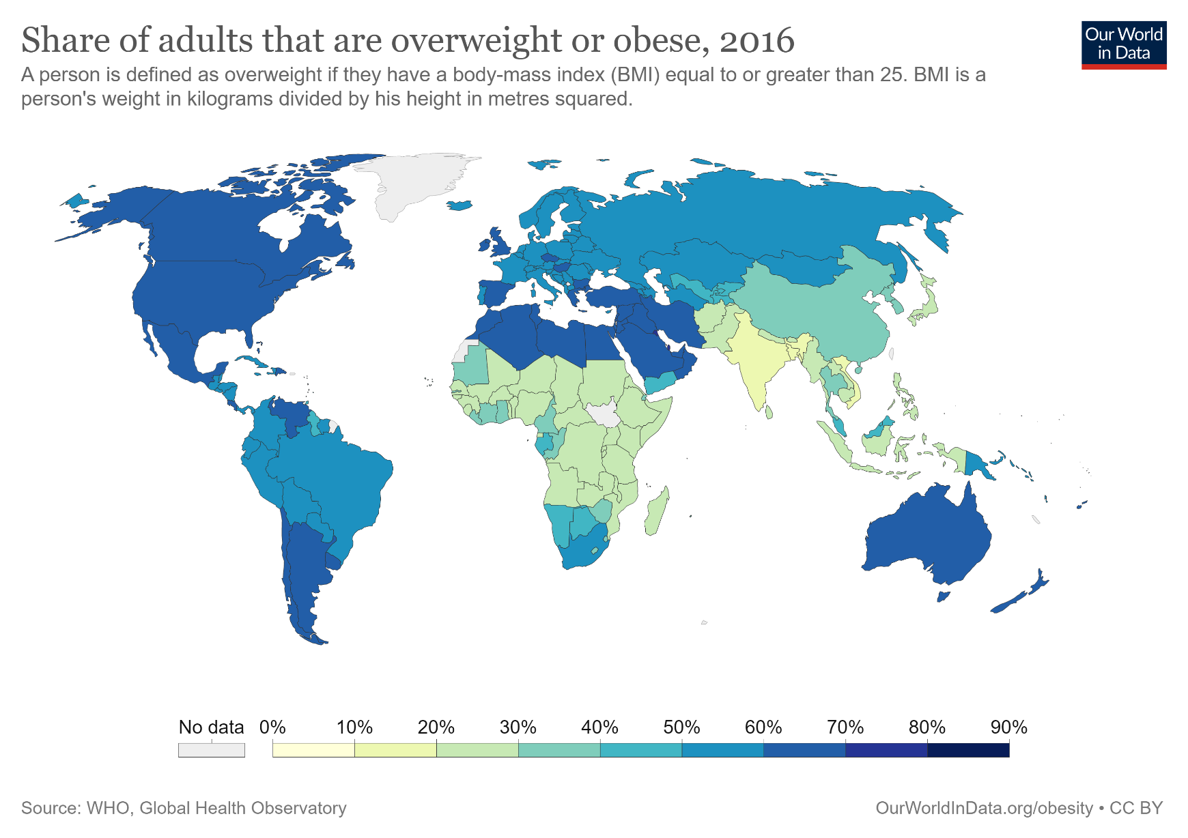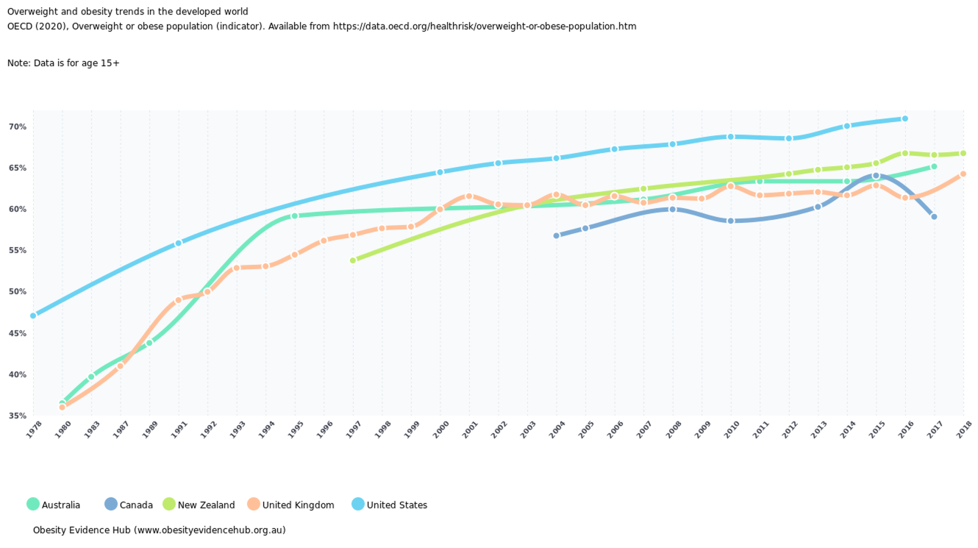What is overweight and obesity?
- Overweight is a condition characterized by an increase in body fat (adipocyte) stores.
- Obesity is a chronic metabolic disease characterised by excessive body fat (adipocyte) stores.
- Both are commonly assessed using the body mass index (BMI), which is a surrogate marker of adiposity calculated as weight (kg) ÷ height² (m²).
- In adults (age ≥18 years) overweight is defined as a BMI between 25 and < 30 kg/m2 and obesity is defined as a BMI ≥30 kg/m2.
- Lower BMI cut-off points for obesity apply for some ethnic groups (e.g. 25.2 kg/m2 in South Asians, 27.2 kg/m2 in African-Caribbean’s and 27.5 kg/m2 in ATSI)
Overweight and obesity prevalence
Prevalence of overweight and obesity
- According to the World Health Organisation, obesity has nearly tripled, globally, since 1975.
- In 2016, more than 1.9 billion adults (39% of men and 40% of women) aged 18 years and older were overweight.
- Of these over 650 million adults were obese.
- If the incidence continues to increase at current rates, almost half of the world’s adult population will be overweight or obese by 2030.


What are the consequences of the global overweight and obesity epidemic?
What are the consequences?
Both overweight and obesity are associated with the incidence of multiple health problems, including, but not limited to:
- cardiovascular diseases (e.g., heart disease and stroke)
- cancers (e.g., colorectal)
- osteoarthritis
- gallbladder disease
- pre-diabetes and type 2 diabetes (collectively: impaired glucose metabolism)
SOURCE: National Health and Medical Research Council, 2015
Overweight, obesity and impaired glucose metabolism
Diabetes: progression or remission?
- recently, type 2 diabetes was considered to be a progressive condition.
- Following the path:
normal glucose tolerance → pre-diabetes → type 2 diabetes. - Disease management has primarily focused on delaying progression rather than achieving remission.

SOURCE: Kelly et al. American Journal of Lifestyle Medicine. 2020; Steven et al. Diabet. Med. 2013
- Publication of evidence about the reversibility of type 2 diabetes in the UK in 2011 was followed by over 1000 enquiries from people with diabetes.
- The overwhelming sentiment expressed was profound relief at the possibility that the condition was not inevitably permanent.
- Prevention/remission will reduce treatment costs and the additional burden of disease due to macro and microvascular complications.
- Diabetes reversal should be a goal in the management of type 2 diabetes.
